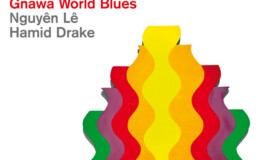“Komeda: A Private Life in Jazz” is the biography of Krzysztof Komeda – Trzciński, composer of no fewer than 40 soundtracks, including film scores to all of Roman Polański’s early films such as „Knife in the Water” and “Rosemary’s Baby”, and a revered figure in the world of jazz, which regards his album “Astigmatic” as a key album in the history of European jazz.
The figure and work of Krzysztof Komeda – Trzcinski (April 27th,1931 –April 23rd,1969) has grown in Poland to the rank of a symbol and a legend. No other Polish jazz musician had as great an influence on modern Polish jazz music as this artist from Poznań. The legendary Komeda Sextet started, at the first jazz festival in Sopot in 1956, a fashion trend for modern jazz and fascination with this genre. Other Polish jazz creators went on the same path to initiate a strong movement being developed for years and years to form a phenomenon described as Polish jazz music. But Krzysztof Komeda found fulfillment as a composer of illustrative music: from brilliant ballet etudes to extensive discography including soundtracks for dozens of films by the most eminent directors. Krzysztof Komeda’s longstanding cooperation with Roman Polanski began already in 1957. The first Polanski movie for which Komeda wrote the score was a debut film titled „Two Men and a Wardrobe„, while the last one was „Rosemary’s Baby „. This proved to be a turning point in the life of Krzysztof Komeda who eventually abandoned medicine and decided to become a professional musician and composer. Komeda’s talent is best evidenced by the fact that he had never studied composition, harmony or instrumentation, and his musical gift was primarily his musical intuition. Honored with the most important laurels and awards, in 1968, he wrote the film score for „Rosemary’s Baby”. This film brought fame to both Polish men; for Polanski it was a turning point of his career in Hollywood, while Komeda started his professional work as a film score composer. The title ballad from the movie, which became an enormous hit, was nominated for the Golden Globe Awards, and has received many great interpretations. Krzysztof Komeda functions in the world primarily as a composer of film score. Although his music is, in its form and structure, jazz music – Komeda is not considered a jazz artist. Komeda was an excellent composer, gracefully weaving jazz into his music-illustrated pathos. The success of Komeda’s music is predominantly due to the daring jazz interpretations and musicians who included the work of this Polish artist in their projects. Krzysztof Komeda, who never achieved absolute piano virtuosity, had developed an extensive musical language and his own style: an amazingly romantic compilation of be-bop, cool-jazz, avant-garde free structure with the unusual Slavic melody. It is for the Komeda’s Jazz School that the term „slavic kind of jazz” was coined. In simplicity, restraint, and sparing, but precise choice of means of expression, Komeda found strength and values that determined the unique character of his music. Comparing Krzysztof Komeda to such pianists as Bill Evans (mood), Thelonious Monk (composition), Bud Powell (technique and skills) and even McCoy Tyner we see characteristics that show how original a composer and pianist Krzysztof Komeda-Trzciński was.
“ Komeda: A Private Life in Jazz” biography of Komeda ( author Magdalena Grzebałkowska, translator Halina Maria Boniszewska) originally published in Polish in 2018, is the first to be published in the English language and not only traces Komeda’s life, but also the development of Polish jazz during this period. It explores how this arose in large part out of a need for self-expression and personal freedom during a repressive period of Soviet communist dominance. The book is full of interviews between the biographer and people who worked with and knew Krzysztof Komeda personally, and, while thoroughly-grounded in primary sources, it is written in a playful, questioning, engaging style.













